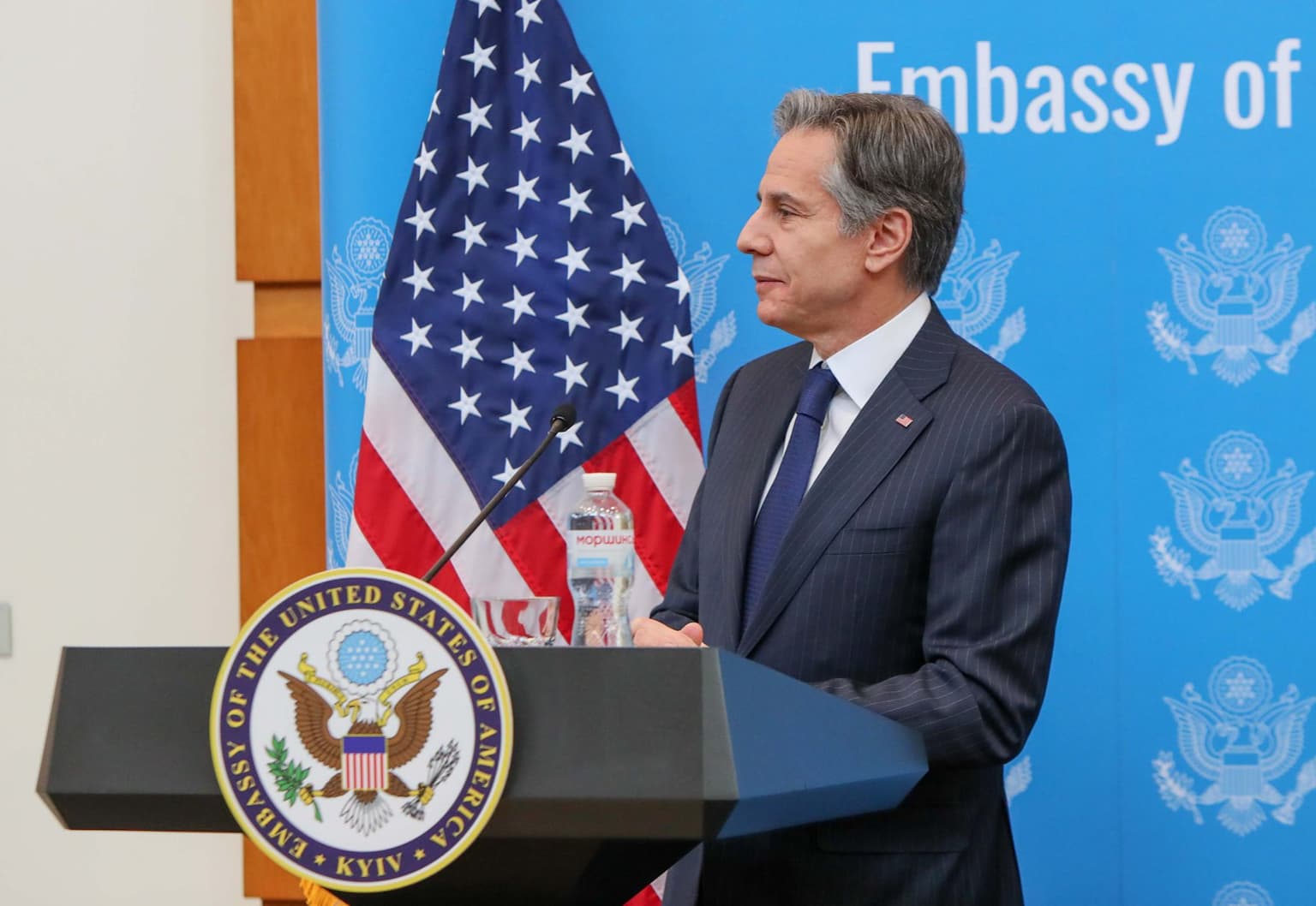US, NATO don't cave in to Russian demands

The U.S. has not caved in to Russia’s demands to halt potential NATO expansion eastward, U.S. Secretary of State Antony Blinken said at a news briefing on Jan. 26.
“We will uphold the principle of NATO’s open-door policy,” he said.
NATO followed suit, saying that it will not compromise on its key principles.
“We cannot and will not compromise on the principles on which the security of our alliance, and security in Europe and North America rest,” NATO Secretary-General Jens Stoltenberg said during a press briefing in Brussels.
Read More: NATO sends more military power to eastern flank
“This is about respecting nations and their right to choose their own path,” he added. “Russia should also withdraw its forces from Ukraine, Georgia, and Moldova where they are deployed without these countries’ consent."
On Jan. 14, Foreign Minister Sergey Lavrov said that the deployment of NATO forces and weapons near Russia’s borders poses a security challenge that must be addressed immediately. “We have run out of patience,” Lavrov said.
Lavrov said Russia expects the U.S. and NATO to provide a written response to its demands within a week. The Kremlin's ultimatum came amid an escalation of Russia’s war against Ukraine, that killed over 13,000 people since 2014.
According to the latest intelligence data, Moscow has concentrated over 120,000 troops in regions surrounding Ukraine, and also deployed a large number of combat-ready weaponry and military hardware from its distant districts.
Blinken said that the U.S. had delivered a written response to Russia’s demands but did not elaborate on its details. He said the response contains offers for a diplomatic path to de-escalate tensions over Ukraine by addressing some of Russia's concerns.
He also said the U.S. was preparing new sanctions against the Kremlin, including export controls, in the high tech and defense sectors if Russia further moves into Ukraine.
"We make clear that there are core principles that we are committed to uphold and defend, including Ukraine's sovereignty and territorial integrity, and the right of states to choose their own security arrangements and alliances," Blinken said.









